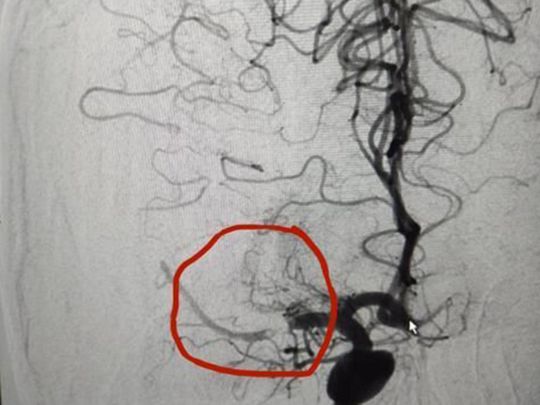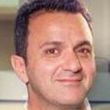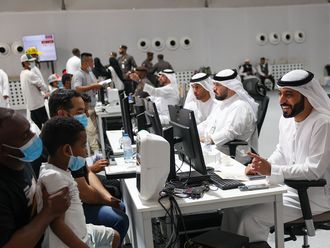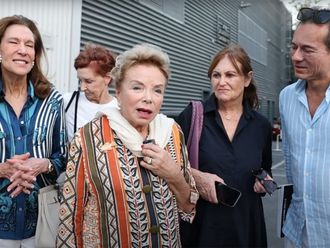
Dubai: In what is believed to be a first case of its kind in the UAE, a team of Dubai Health Authority (DHA) doctors successfully treated on a 25-year-old pregnant woman who suffered a brain stroke, completely reversing her stroke symptoms and saving her pregnancy as well.
It was a coordinated effort of the interventional radiology, anaesthesia, emergency and the stroke unit teams at DHA’s Rashid Hospital, where all doctors worked in tandem providing relief to the patient in less than an hour, which was crucial to reversing her stroke symptoms.
Doctors at Rashid Hospital carried out the high-risk procedure, keeping the safety of the young mother-to-be and her baby in mind, taking all precautions and making a specific treatment protocol to treat the young woman.
Mall outing gone wrong
Recounting the case, Dr Sohail Al Rukn, head of the stroke unit at Rashid Hospital, said: “This young girl married only three months ago. She was visiting a mall in Dubai, travelling with her husband from Fujairah. She was 12 weeks pregnant and as soon as they entered the mall, the young girl could not move her left hand, she had a dropping mouth, her speech was slurred and she lost vision in her left eye. These are classic symptoms of stroke. The mall staff was trained to recognise such symptoms and they summoned an ambulance, which arrived within eight minutes. The paramedics checked her vital parameters, resuscitated her, gave her oxygen and directly transferred her to the stroke unit.”
Dr Al Rukn immediately set the team in motion, coordinating with the emergency doctors, the interventional radiology and anaesthesia teams.
Challenge was to save mother and baby
Dr Ayman Al Sibaie, consultant interventional radiologist at Rashid Hospital, told Gulf News: “This is the first case of its kind that I have handed in my entire career. The biggest challenge for us was to save the life of the young mother-to-be as well the foetus in her womb. Conducting a CT scan first was also tricky and we used a proper lead cover to protect the baby from radiation.”
He added: “The scan showed that there was decreased blood supply to the right side of her brain. We had to take a quick decision to make - to either use a blood thinner, which could risk the life of the baby or do an intervention using a thrombectomy catheter. We decided on the latter, in this case we used just the lowest doses of radiation to get a less clear contrast picture so as to minimise any damage to the foetus.
“We also decided to do the procedure under local anaesthesia. The interventional procedure clearly showed that a major artery was affected and the right side of her brain was completely occluded. In case of strokes, brain as cells die every second.”
Fast recovery
Dr Al Sibaie continued: “The challenge was to go in quickly, use the special catheter and use suction to extract the clot. She came to the emergency at 4.35pm and we were able to operate on her by 5.33pm, within one hour of her arrival, within the first hour of the stroke episode. The quick intervention helped as the patient showed immediate symptoms of recovery as soon as the clot was removed and blood supply was restored to that section. Later, a gynaecologist examined the patient and was able to confirm the foetus was doing well. The family was very happy as the patient recovered very quickly and within two days was able to go home.”
The patient is continuing with her pregnancy and is now using telemedicine consultation to determine the cause of her sudden stroke, as she had no prior history of hypertension or cardiovascular disease.
Don’t ignore symptoms
Dr Al Rukn said: “No matter what your age, never ignore the typical stroke signs of ‘F.A.S.T.’, which stands for facial drooping, arm weakness, speech difficulties and ‘T’ stands for Time. ‘Time is brain’ as every minute we have millions of brain cells dying. Therefore, the patient must report to the emergency section of the hospital without wasting time. In this case, the patient also lost her vision briefly. She was so young, yet it happened and timely intervention saved her life as well as that of her foetus.”
Rising cases
He continued: “Age is no deterrent to strokes. Until a few years ago, our annual number of stroke was 700 and now it has dramatically gone up to a 1,000 cases of stroke annually, at the Rashid Hospital. However, the good news is that most of these patients can experience a complete reversal of symptoms provided they reach us in time and treatment is provided without wasting a second.”










